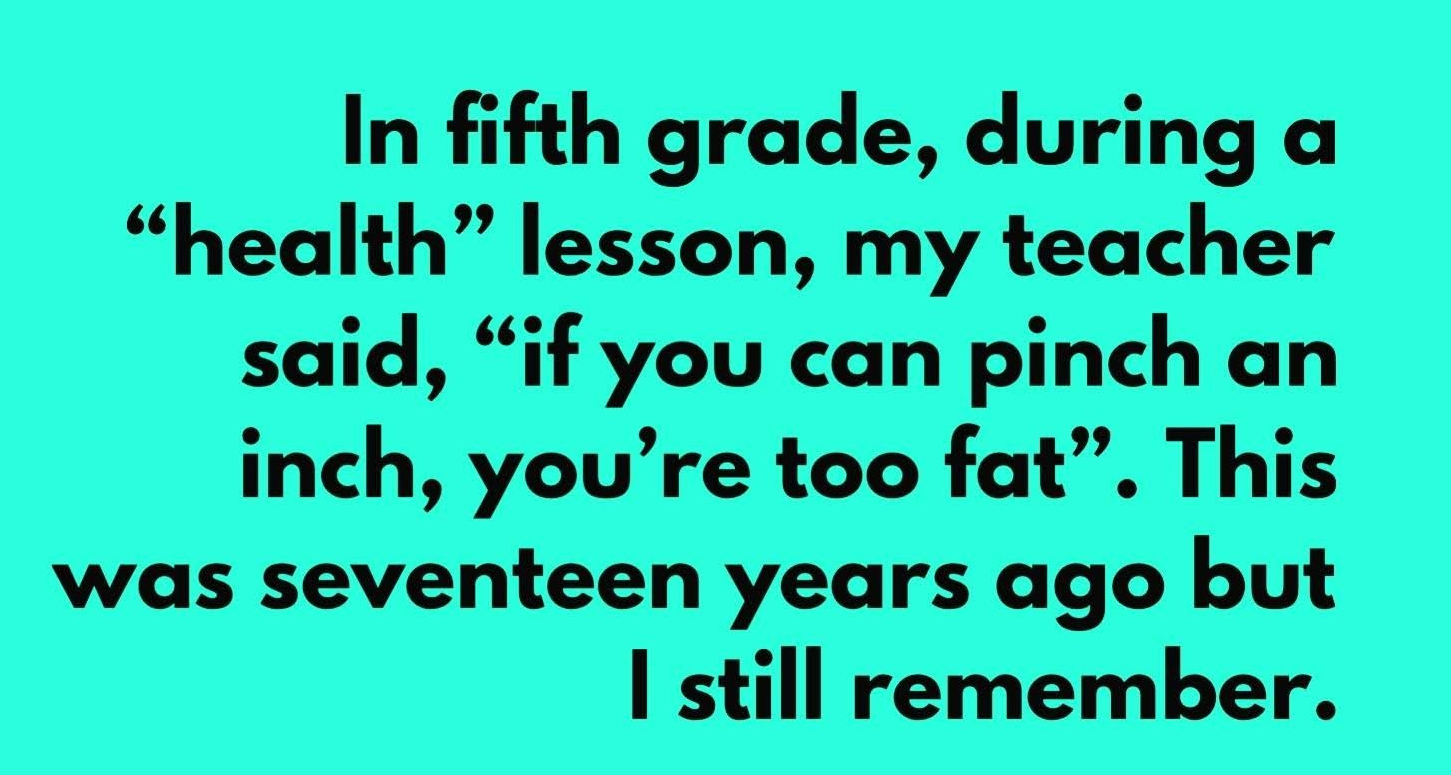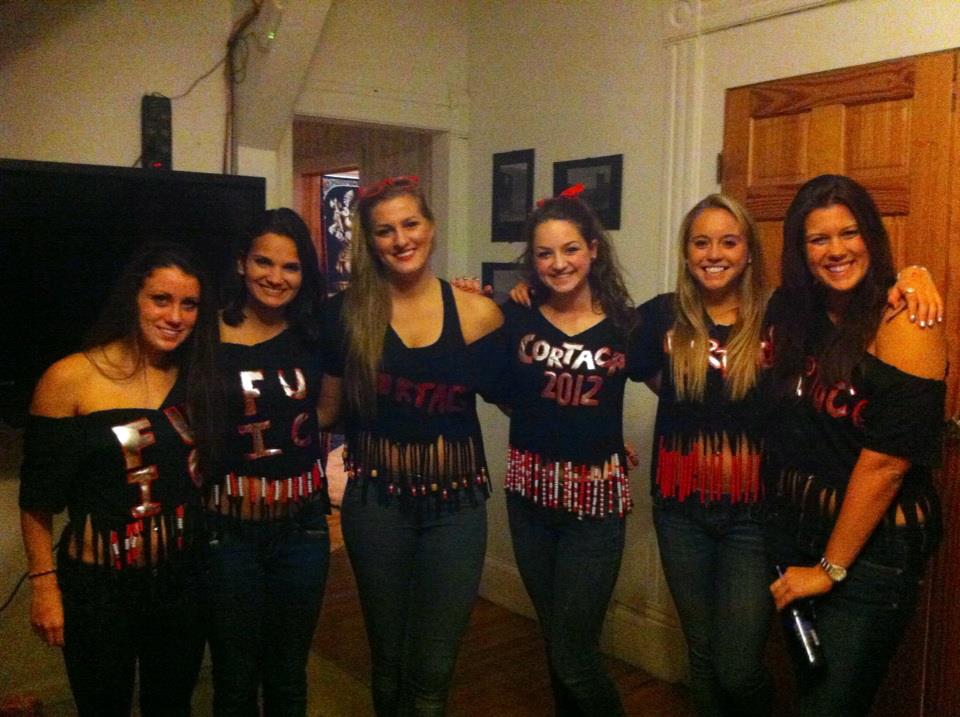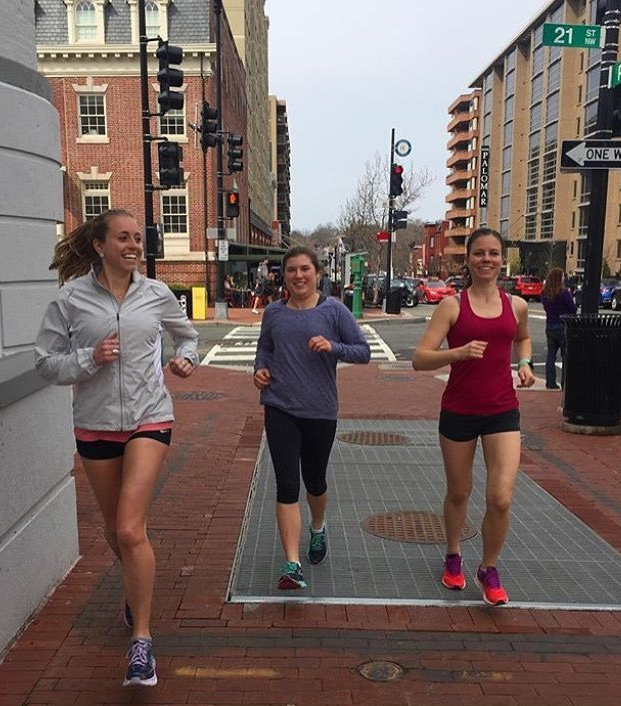“Come as You Are sends a message to individuals at all stages of body acceptance and eating disorders recovery that their stories are valid.” -National Eating Disorder Association
For a very long time, I believed that I needed to change.
My best friend growing up was smaller than I was. She lived down the street and as a result we spent a lot of time together. I’m not sure when it began or how I got the idea in my head, but I remember thinking at a very young age that she was better because she was smaller. The idea seems to have formed out of thin air, but before I could even read chapter books, I knew the size of your body was meaningful and that smaller was supposedly better.
My parents dieted. Atkins, Weight Watchers, SlimFast, low-fat. You name, they tried it. This is no fault of their own, they grew up being fed the same false narrative that is touted today, that thinness is valuable and something important to strive for. They’re victims of diet culture too. Since I grew up watching them spend their time, money, and energy on manipulating their bodies, eventually I learned that in order to be accepted by the world, I should dedicate myself to changing my body, too.
In fifth grade, during a “health” lesson, my teacher said, “if you can pinch an inch, you’re too fat”. This is a direct quote, said to a classroom of ten year olds. I could pinch an inch. This was seventeen years ago but I still remember.

As the years passed, the messaging, and the modeling by peers and adults compiled. I spent middle school afternoons watching super thin pop stars sing and dance and be praised for their flawless looks on TRL. I read Seventeen, and later Cosmopolitan, and learned all the little tips and tricks I needed to be beautiful. I also set up a Myspace account; the comparison trap of social media began.
Once I started running, I began to feel a hint of success and a sense of belonging. Before running, I didn’t know where I belonged and I never felt like I measured up. I never felt like the “pretty” or “skinny” one in the group and as a 13 year old, that often seemed like the only thing that mattered. Running was different though, I was good at it and for what felt like the first time, people looked up to me and wanted something I had.

Baby me running in 2009
It wasn’t all positive though. Throughout high school, while many girls gained weight, a natural result of life changes and bodily maturity, I lost weight. At this point it wasn’t intentional, just a result of my high activity level that included not only running but karate, as well. But once I lost weight, I wanted to keep losing. I looked around the start line at races and so many girls were still thinner than me and I thought that if I wanted to beat them, I’d need to be thinner too. So I started “forgetting” my lunch, “filling up” on water, and weighing myself. It started slow, but eventually consumed me.
By my sophomore year in college, my quest for belonging and acceptance had led me to feeling more isolated and wrong than ever before. I had friends, maintained relationships, and did all the things other college athletes do, but I was always going through the motions, never truly there. I now know that some of my closest friends were struggling too and that they would have supported me wholeheartedly if I’d asked, but I was going through something that people didn’t talk about and I was afraid of bringing it up.

College Teammates, roommates, and forever friends
A year or so after graduating college, through some combination of environment, circumstance, maturity, and luck, I started climbing my way out of the eating disorder I’d fallen into. Little incremental changes crept into my life without me noticing. When I finally did acknowledge the changes, I became determined to keep them up, and for the most part, I did. But I didn’t truly change until two years ago, when I met Heather Caplan and Samantha Strong. They were the first people that without verbalizing it, made me feel as if they were giving me permission to “come as you are”.

Sam, Heather, and I
Before Heather and Sam, I’d never talked to anyone about the struggles I was going through but with the two of them, I spoke about it without question. I was hesitant and shared very few details, but I started talking. I held back a lot due to shame and worry that I was exaggerating the past, remembering things as more troublesome than they were. But eventually, I began allowing myself to see my story and struggle as valid. For the first time, I stopped believing I was being dramatic and weak, and started believing I had struggled from an actual eating disorder.
It’s true that I probably never would have met the diagnostic criteria for a disorder, especially considering that I wasn’t “underweight”, but just like a workout at marathon effort is marathon effort whether it’s at marathon pace that day or not, eating disorder behaviors are eating disorders whether you meet a weight criteria or not.
So many of us fail to seek help for eating disorders, disordered eating, chronic dieting, or other mental health issues because we don’t deem our struggles serious enough. We never think we deserve treatment and we love to tell ourselves that we’re okay because someone else is worse off. But here’s the thing: when we say we aren’t sick enough or that we don’t “deserve” treatment, that right there is the disorder talking. If you’re struggling but you feel like your illness isn’t valid or deserving of help, that’s hard evidence of exactly how much help you deserve.
If any part of my story resonates with you, even to the smallest degree, know that you are not alone and you do deserve help. This is your invitation to come as you are. If you believe you’re struggling from an eating disorder, tell someone and seek help. If you’re not sure, take a minute to self-assess with the NEDA Screening Tool. But even if you’re not suffering from a clinical eating disorder, you deserve help too. Not everyone needs professional eating disorder treatment, but your pain is valid regardless and you deserve to open up and talk to someone. So here’s your invitation to do just that. Find someone you trust, reach out through the NEDA hotline, to a therapist, or to the Lane 9 Project community and find someone to lend an ear. No matter where you are in your journey to self-acceptance and recovery, your story, your struggle, your pain, your resilience, and your triumph are valid. You don’t need it, but in case you feel like you do, you have unwavering permission to come as you are.
NEDA’s 24/7 Hotline: 1-800-931-2237
Let's Go!
Coaching for Runners
Work with our coaches for a personalized training plan that takes into account every aspect of your life - from season to traveling to terrain.
Learn More
Workshops for Teams
Book a workshop to help shift team cultures and coach attitudes to provide a healthier environment and more competitive athletes.